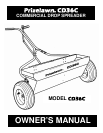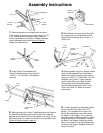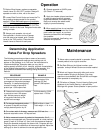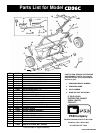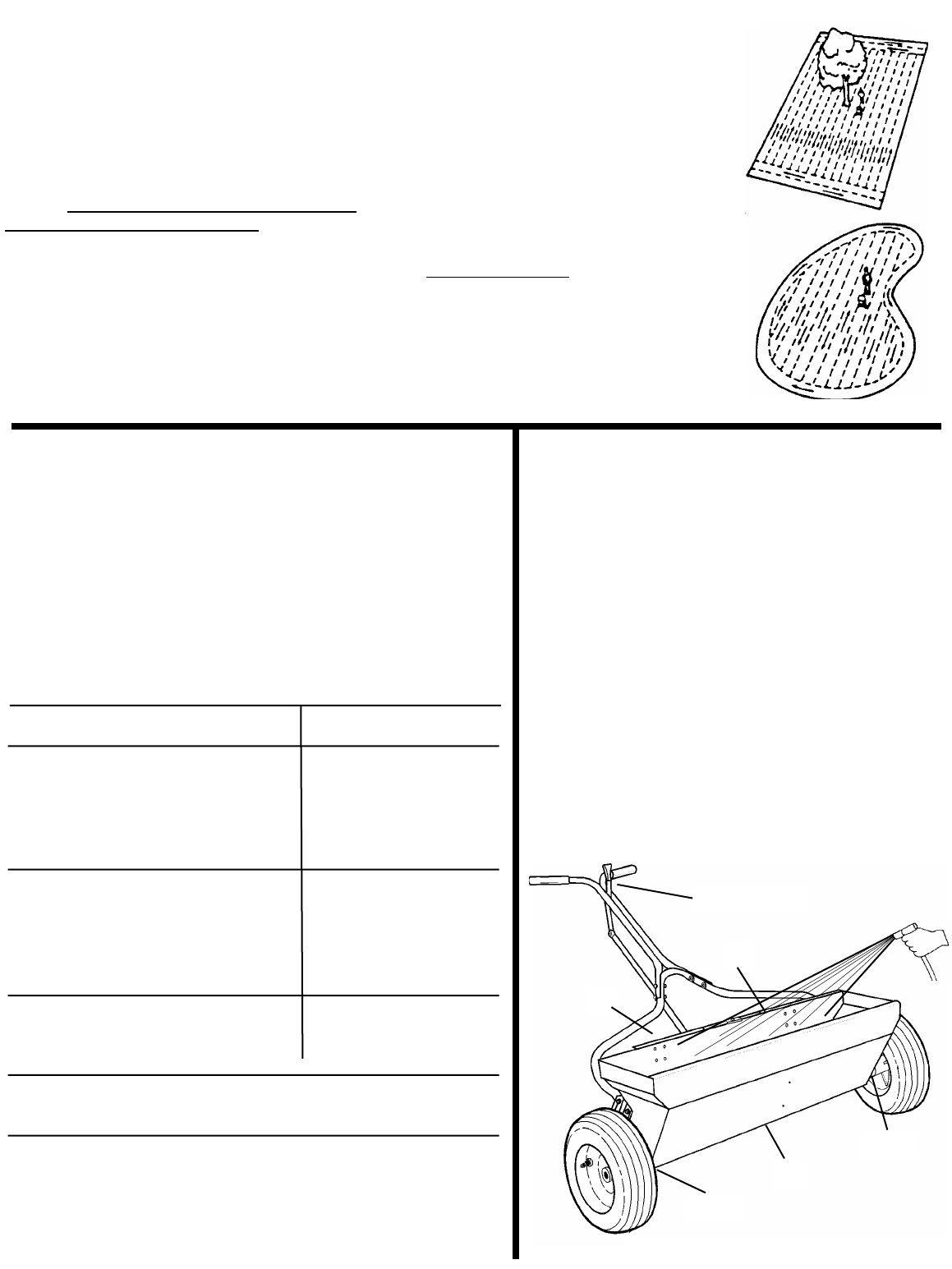
Operation
1. Before filling Hopper, make sure spreader
Handle Lever is in the “OFF” position. Always fill
spreader on walk or drive, not on the lawn.
2. Loosen Rate Control Knobs and move the Tie
Bar to setting recommended for the product
applied. If PrizeLAWN settings are not available,
use Scotts
® drop spreader settings. If setting is not
known, refer to “DETERMINING APPLICATION
RATES” section of this book. Retighten knobs after
setting is made.
3. Always push spreader, do not pull.
Start spreader in motion and as it passes
over the area to be treated, push Handle
Lever to the “ON” position. Close Handle
Handle Lever at the end of each pass.
4. Operate spreader at 3 MPH pace.
(33.3 feet in 7.5 seconds)
5. Apply two header strips at each end
of area to treated and then proceed
lengthwise between the header strips.
Be sure to overlap the wheel tracks
slightly to prevent streaking.
6. When applying lime, do not use lime-
stone that is so finely ground that it will
pack inside the Hopper, or use hard,
abrasive particles which will damage
the spreader.
Use only compacted, free flowing, non-
abrasive lime products.
Maintenance
1. Never store unused material in spreader. Return
unused product to its original container.
2. Set Rate Slide on the highest number, open
spreader and spin Wheels to remove excess material.
3. Wash out Hopper thoroughly after each use to
remove material clinging to surfaces. Pay close
attention to area between the Shutoff Bar and Hopper.
Allow spreader to completely dry.
4. Oil bottom of Hopper, Control Housing Spring and
Agitators at the Center Bearing. Lubricate Axle
Bearings with grease. Store spreader in open position.
The following procedure provides a means of accurately
determining drop spreader settings when settings do not
appear on the package, or to “fine tune” the manufacturer’s
recommend settings. Spreader rates can vary due to
walking speed, condition of turf. humidity, physical characteristics
of the product being applied, or condition of the spreader. It is
good practice to double check settings using the following
method:
PROCEDURE EXAMPLE
1. The manufacturer will recommend The contents of this
coverages on the product package. package (25 lbs.)
Generally, it is stated as applying covers 2,000 square
a certain number of pounds of feet.
product per 1,000 square feet.
2. Determine the amount of material 2,500 divided by 2,000
in pounds to cover 100 square square feet= 1.25 lbs.
feet. Add two zeros to weight
of bag and divide that by the
square foot coverage.
3. To change the decimal portion 0.25 x 16 oz. = 4 oz.
of answer in step #2 to ounces, Total weight = 1 lb.- 4 oz.
multiply decimal portion by 16.
4. On a clean walk of driveway, measure out 33.3 feet- the
distance required to cover 100 square feet.
5. Add a measured amount of product to the spreader- 2 to 3
times the recommended rate. Operate spreader at a brisk walking
speed (3 mph of 33.3 feet in 5. sec.) over the measured distance.
Empty the spreader and weigh the amount left. Compare with the
beginning amount; the difference is the amount applied. Adjust the
setting up or down to achieve the correct application rate.
Determining Application
Rates For Drop Spreaders
Oil
Oil
Grease
Grease
Oil
“Open”
Scotts® is a registered trademark of The Scotts Company



